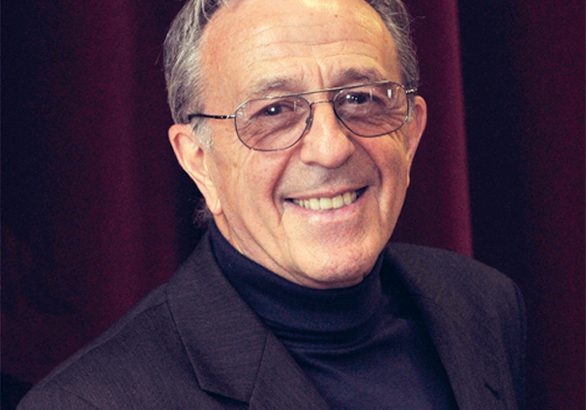News of the death of Fr Daniel O’Leary [pictured] has saddened me. Like many people around the world I am blessed to be able to say that Daniel was my friend.
As a woman working within the Church, writing and speaking, involved in theology and spirituality I have often found the Church a difficult place to be. Daniel gave me the inspiration and confidence to believe that I was not mad and that it was worth sticking my neck out and talking about the spirituality of family life, the encounter with God in the every day.
I feel that our Church and our world has lost a prophet, one who was filled with the Spirit, who saw the world through God’s eyes and called us to realise the dream God has for us.
For Daniel that dream was one of love – that we would know how deeply and passionately we are loved by God and in knowing that, we too would love others deeply and passionately. Daniel was under no illusion about how fragile and broken we can be as human beings. He was not naïve and spoke honestly about the poor and damaging choices we can make.
What he did not do however was define us by that brokenness – rather he defined us in terms of the Incarnation. Throughout his writings Daniel comes back to the theme of Incarnation – that God loves us so deeply his desire is to be with us. So, for Daniel – as for many theologians and people of prayer before him – Jesus becoming one like us is not a plan B to ‘fix’ what went wrong in the Garden of Eden.
No, from the beginning God’s desire to love has meant that Creation and Incarnation go hand in hand. From the beginning God desired to send his Word, his Son to be one like us so that we would know God face to face.
Implications
If we actually take the Incarnation as seriously as Daniel is suggesting then that will have implications for – well, everything! It is challenging to think that in our faith we have put the emphasis too much on ideas of fall and sin and banishment from paradise and not enough on the idea that we are created in the image and likeness of God and carry that image within us, waiting to shine out, even when we are broken and fragile.
We are invited to consider every aspect of creation, every experience in our daily lives as an encounter with God. And so, he can say: “Our humanity, like that of Jesus, is the womb of the divine. We are all God-carriers, always giving birth to a new vision, forever revealing Infinite Love in the most unlikely places” (Already Within, Page 9).
That idea of encountering Infinite Love in “unlikely places” can be threatening. There is a clerical mindset – which can exist among laypeople as well as clergy – which seeks to control access to God and restrict it to those who are ‘worthy’.
In that mentality God is seen as residing in the Church, accessible only through the Eucharist and the sacraments. Daniel encourages us to be open to the liturgy of everyday life and so appreciate even more what is offered to us in the Church, but a clerical mentality kicks out against those ideas. It is easy to see why Pope Francis refers to clericalism as a perversion of the Church.
I want my children and yours to believe that God loves them passionately. I want them to know they carry within themselves the image of God and for them to be part of a Church which nourishes that image. I don’t want them stifled by clericalism.
I will leave you with a benediction Daniel sent me just a few months ago: “May you shine like the Sun for that is what you were created from the beginning to do.”


 Bairbre Cahill
Bairbre Cahill Daniel O'Leary
Daniel O'Leary 